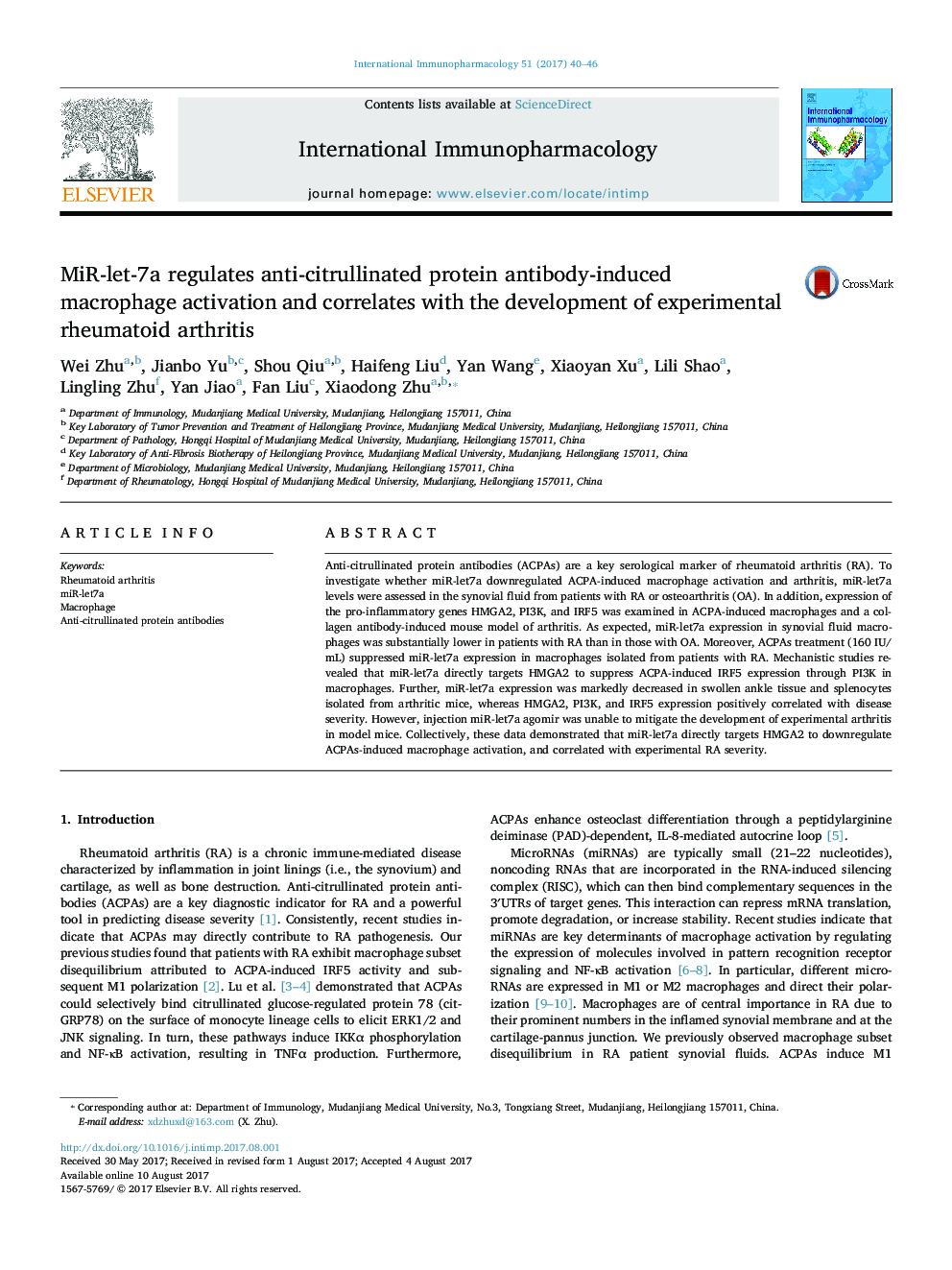| Article ID | Journal | Published Year | Pages | File Type |
|---|---|---|---|---|
| 5555214 | International Immunopharmacology | 2017 | 7 Pages |
â¢miR-let7a expression is downregulated in patients with RA.â¢miR-let7a regulates ACPAs-induced macrophage activation.â¢miR-let7a expression is correlated with experimental RA severity.
Anti-citrullinated protein antibodies (ACPAs) are a key serological marker of rheumatoid arthritis (RA). To investigate whether miR-let7a downregulated ACPA-induced macrophage activation and arthritis, miR-let7a levels were assessed in the synovial fluid from patients with RA or osteoarthritis (OA). In addition, expression of the pro-inflammatory genes HMGA2, PI3K, and IRF5 was examined in ACPA-induced macrophages and a collagen antibody-induced mouse model of arthritis. As expected, miR-let7a expression in synovial fluid macrophages was substantially lower in patients with RA than in those with OA. Moreover, ACPAs treatment (160Â IU/mL) suppressed miR-let7a expression in macrophages isolated from patients with RA. Mechanistic studies revealed that miR-let7a directly targets HMGA2 to suppress ACPA-induced IRF5 expression through PI3K in macrophages. Further, miR-let7a expression was markedly decreased in swollen ankle tissue and splenocytes isolated from arthritic mice, whereas HMGA2, PI3K, and IRF5 expression positively correlated with disease severity. However, injection miR-let7a agomir was unable to mitigate the development of experimental arthritis in model mice. Collectively, these data demonstrated that miR-let7a directly targets HMGA2 to downregulate ACPAs-induced macrophage activation, and correlated with experimental RA severity.
